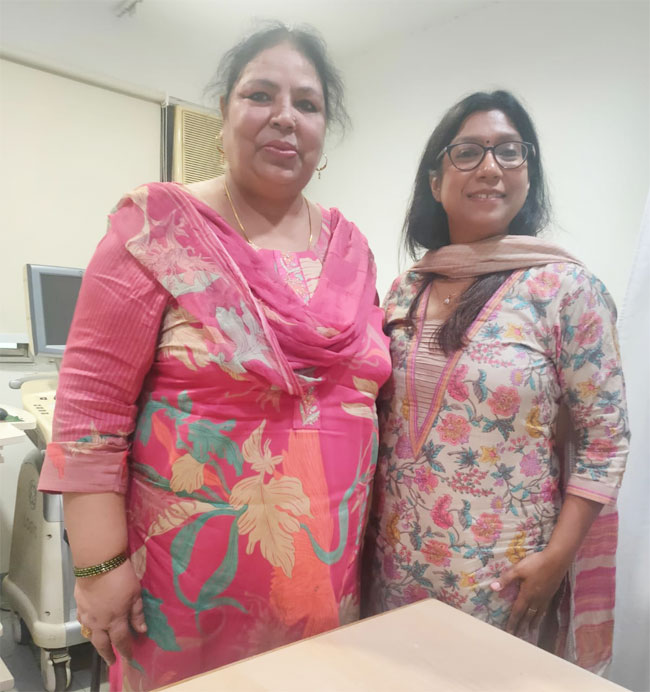Overview of Shoulder Pain
Shoulder pain occurs predominantly in the shoulder area and is associated with several structures in the shoulder joint, such as bone (humerus, scapula, and clavicle), muscle, ligament, tendon, cartilage, etc. Due to its anatomy and complexity, the shoulder has tremendous motion; at the same time, it has made itself that much more prone to injury and becomes susceptible to degenerative changes.
The problem in shoulder results from acute injuries, gradual overuse, or degenerative changes. It may sometimes be localized to the shoulder joint and radiate to the arm and neck. Some descriptors of pain, according to its source, may include sharp pain, deep pain, aching pain, stiffness, or restricted range of motion.
Causes of Shoulder Pain
Pain in the Shoulder comes about through a list of causes, including:-
- Rotator Cuff Injuries: Tear or inflammation of the tendons that stabilize the shoulder
- Frozen Shoulder (Adhesive Capsulitis): Stiffness and pain cause restriction in shoulder movement
- Shoulder Impingement Syndrome: External compression of the tendon or bursa within the shoulder joint during arm movements
- Arthritis: Stiffness and pain are secondary to degenerative or inflammatory joint disease
- Bursitis: Inflammation of the fluid-filled sac (bursa) in the joint
- Dislocation or Instability: A State in which the shoulder joint slips out of place
- Fracture Injury caused by trauma to the body structures in the shoulder.
- Repetitive Strain: Such overuse in the name of sports and work related to the activities mentioned above
- Poor Posture Results in muscle imbalance and shoulder pain
Problem of Shoulder Pain
This experience is highly conditioned and defined as a causative agent. However, the most typical symptoms are:-
- Constant ache advancing into extremely severe pain, frequently radiating into the upper arm
- Rigidity and restricted range of movement
- Clicking or popping sound accompanying arm movement
- Swelling around the shoulder joint
- Weakness in the shoulder or arm muscles
- Referred pain to the neck or back
- Discomfort in sleeping on the injured side
Diagnosis of Shoulder Pain
Here at Dr Ekta's Pain Management Clinic, all patients will be approached in conjunction with a very detailed history and a physical examination, and thereby a specific protocol for enhanced diagnostic measures will be considered. Said measures may involve:-
- X-ray to clarify if there is a presence of a fracture or arthritis, and whether there is an alignment problem with the joint
- MRI is more detailed on tendons, ligaments, and soft tissues
- Ultrasound modality to assess tears in the rotator cuff or bursitis
- CT scan-where the fracture is complicated.
- Diagnostic injection-very important in defining the actual origin of the pain.
Why We Are Different

No
Surgery

30-Minute Procedure

Targets Root Cause

Minimal Downtime

Long-Lasting Results

Proven, Safe Methods
Treatments for Shoulder Pain at Dr Ekta's Pain Management Clinic
Dr Ekta's Pain Management Clinic has always focused on non-surgical, least invasive treatment options for long-term pain relief:-
Medication Therapy
- NSAIDS for pain relief and inflammation
- Muscle relaxants for stiffness
- Neuropathic drugs for nerve-related pain
Exercises and Rehabilitation
- Strengthening and stretching programs for the rotator cuff and supportive muscles
- Range-of-motion exercises for stiffness (especially frozen shoulder)
- Postural correction to prevent recurrence
- Heat and cold therapy for symptom relief
Interventional Pain Procedures
- Corticosteroid Injections: Reduce inflammation from bursitis, arthritis, or impingement.
- Suprascapular Nerve Block: It relieves chronic shoulder pain.
- Facet Joint Injections: It is useful when shoulder pain is referred from cervical spine issues.
- Radiofrequency ablation (RFA): More prolonged relief by ablating the pain-transmitting nerves.
- Platelet-rich plasma (PRP) therapy uses the body's healing factors to repair injured tendons and tissue.
Lifestyle and Ergonomics
- Activity changes to prevent strain
- Weight loss for better musculoskeletal health
- Ergotherapy at work and home
- Gradual return-to-sport/activity programs
Self-Care and Prevention Tips
- Maintain a good posture, especially when seated for long hours.
- Incorrect lifting of heavy objects.
- Warm up before any physical or sporting activity.
- Gentle stretching exercises that are done daily keep joint flexibility intact.
- Sleep on a supportive mattress and avoid sleeping on the painful shoulder.
Supportive exercises for the shoulder, core, and upper back muscle groups will help to maintain or improve shoulder function.
Shoulder Pain FAQs
Is surgery always necessary for shoulder pain treatment?
Not really. Dr Ekta's Pain Management Clinic treats most conditions related to shoulder pain through non-surgical methods, such as physiotherapy, injections, and regenerative therapies.
For how long does frozen shoulder last?
Typically, a frozen shoulder lasts about 12-18 months, but recovery is faster with physiotherapy and injections.
Do rotator cuff tears heal by themselves?
Rest and physiotherapy can cure minor tears. Still, bigger tears nearly always require advanced treatment methods such as PRP therapy and, rarely, surgery.
What's the fastest way to relieve shoulder pain?
Cold therapy, rest, and NSAIDs can provide short-term relief. Still, other targeted treatments, such as nerve blocks, would be more effective for a longer duration.
How do I prevent shoulder pain from recurring?
Good posture, tracking of activities, and routine exercise for limiting repetitive strains are among the best preventive measures. Following rehabilitation after treatment will help reduce recurrence.
Why Choose Dr Ekta's Pain Management Clinic for Shoulder Pain?
- Expert and credentialed practitioners in diagnosing and managing shoulder pains non-surgically. Advanced therapeutic interventions: PRP therapy, nerve blocks, and RFA.
- Physiotherapy programs that are holistic in strength restoration and mobility.
- Personalized care plans that are elicited from the causes of the pain.
- A patient-centered approach prioritizing comfort, safety, and long-term recovery.
It is in Dr Ekta's Pain Management Clinic's pursuit of rapid recovery from shoulder pain without surgery, restoration of articulation, and improvement of our patients' quality of life.
 info@drektapainmanagement.com
info@drektapainmanagement.com +91-9560852171
+91-9560852171 Clinic, Rajouri Garden
Clinic, Rajouri Garden Max Hospital, Shalimar Bagh
Max Hospital, Shalimar Bagh

